Publications
Articles, publications, books, tools and multimedia features from the U.S. Institute of Peace provide the latest news, analysis, research findings, practitioner guides and reports, all related to the conflict zones and issues that are at the center of the Institute’s work to prevent and reduce violent conflict.
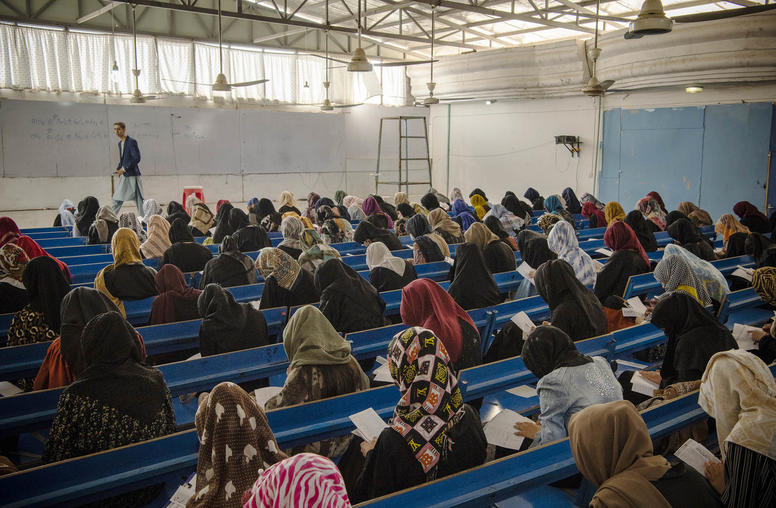
Taking a Terrible Toll: The Taliban’s Education Ban
Last month, a year after the Taliban banned Afghan girls from receiving secondary education, another school year began in Afghanistan — the only country in the world where girls are prohibited from going to school beyond the primary level. Since the Taliban’s August 2021 takeover, the group has sought to marginalize women and girls and erase them from virtually every aspect of public life. After a March 2022 ban on high school education, the Taliban also barred women from attending university at the end of last year. In a series of interviews with USIP, Afghan mothers, female students, schoolteachers, and university lecturers spoke of the terrible toll the Taliban’s actions have taken on their mental health.

Searching for COVID-19 Ceasefires: Conflict Zone Impacts, Needs, and Opportunities
On March 23, 2020, as COVID-19 was first appearing in many conflict-affected areas, UN Secretary-General António Guterres issued a call for warring parties to cease hostilities and instead wage battle against the pandemic. Drawing on an examination of conflicts in Afghanistan, Colombia, Cameroon, Israel and Palestine, Libya, the Philippines, Syria, Ukraine, and elsewhere—this report looks at how COVID-19 has affected conflict parties’ interests, positions, and capacities, and provides recommendation for how the international community leverage the pandemic to promote peace.
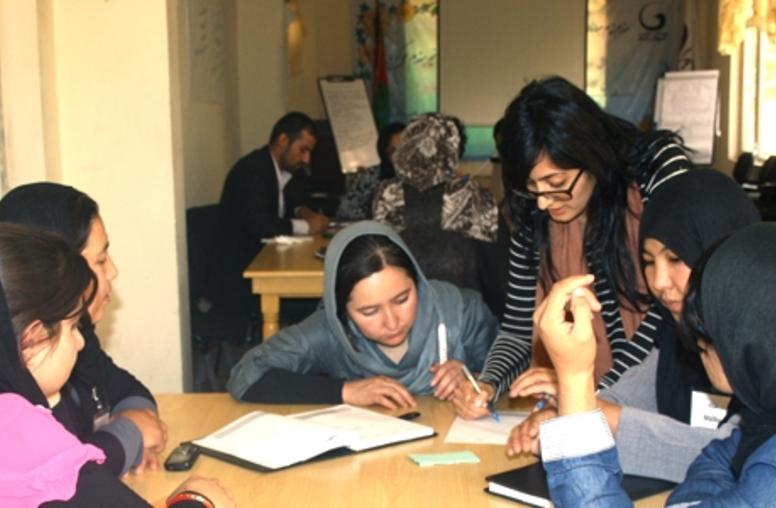
Welcome to Afghanistan’s Peace College
Can you teach your way out of a war?
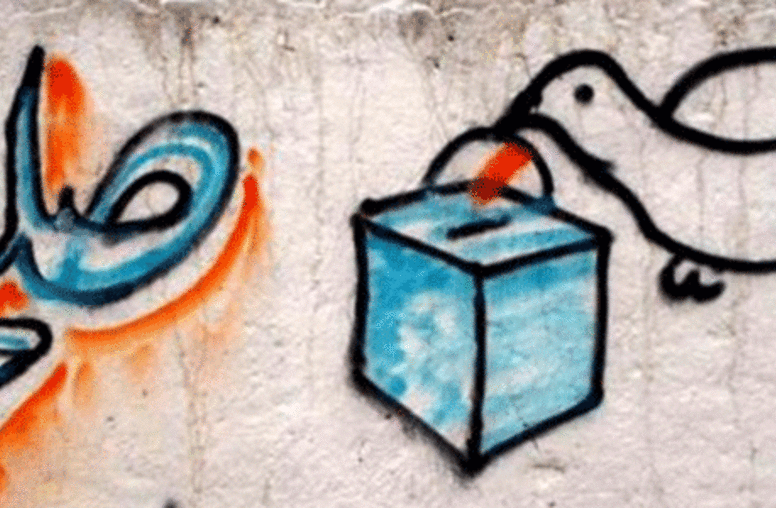
USIP & Afghanistan’s Political Transition
Since 2011, USIP has advocated that Afghanistan’s political transition, and the presidential election in particular, will be the most crucial factor in determining the country’s stability post-2014. USIP has conducted research, facilitated discussions, and raised awareness of this issue through publications, projects on the ground, events, and briefings for government officials on the importance of and need to support the political transition. Learn more on USIP’s Support for a Successful Afg...
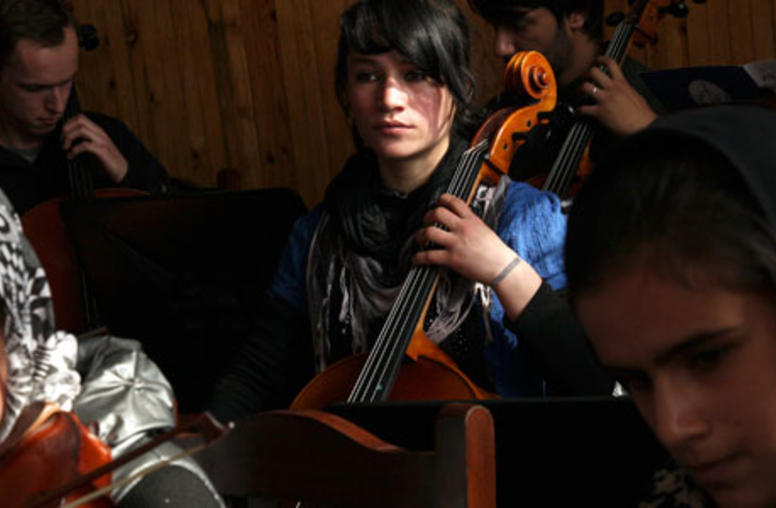
Kennedy Center Concert Highlights Music as a Source of Hope for Afghanistan’s Future
USIP’s Hodei Sultan reflects on the recent U.S. concert tour by youth ensembles from the new Afghanistan National Institute of Music.

Challenges and Opportunities for Women in Transition: An Expert Dialogue with Afghan, Iraqi, Libyan and Tunisian Women
On December 7-9, 2012, USIP’s Center for Gender and Peacebuilding brought together a group of Afghan, Iraqi, Libyan and Tunisian women to build on the findings from a June 2012 Dialogue and to identify common challenges and opportunities across the countries.
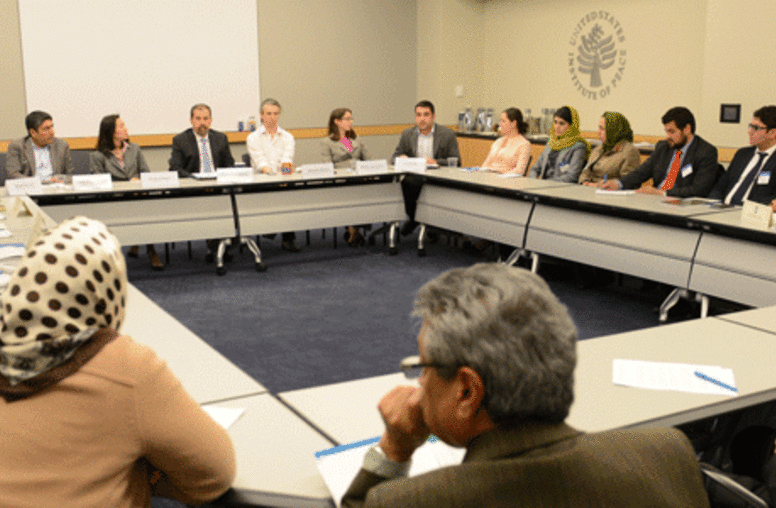
USIP Talks Aid, Self-Reliance with Early-Career Afghan Diplomats in Joint U.S.-China Program
Afghan diplomats preparing to help steer their country’s foreign policy heard messages of support along with encouragement toward self-reliance during a stop at the U.S. Institute of Peace (USIP) on December 5. The session was aimed at briefing them on the array of USIP programs centered on their country as the United States turns over more responsibility to the government of Afghanistan.
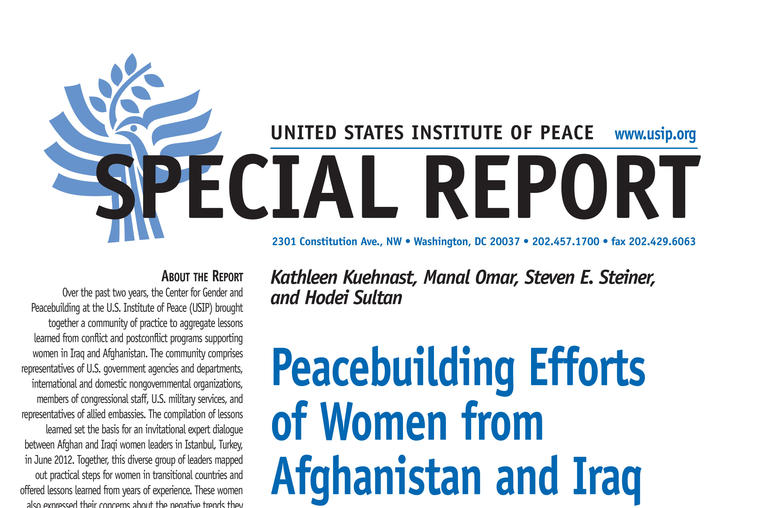
Peacebuilding Efforts of Women from Afghanistan and Iraq: Lessons in Transition
Afghan and Iraqi women leaders met earlier this year to discuss how women in North African transition countries can play a role in reshaping their societies. Based on their own experiences with transition, these leaders offered advice on what to do and what pitfalls to avoid.
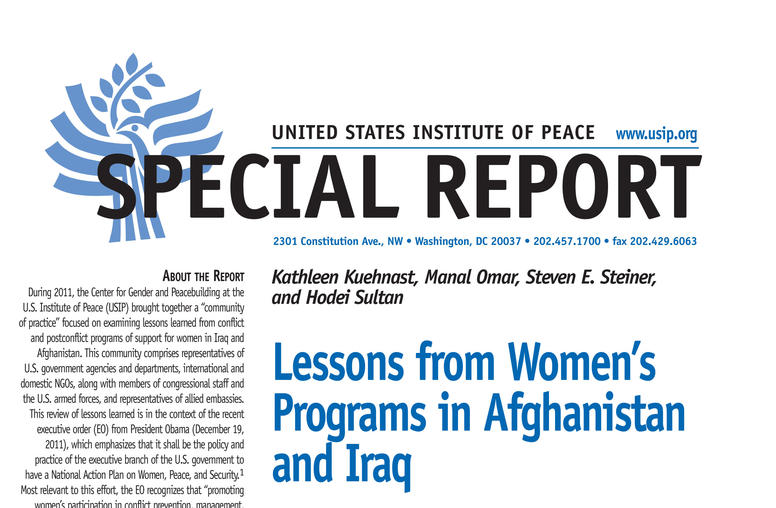
Lessons from Women's Programs in Afghanistan and Iraq
Despite years of efforts aimed at expanding women’s rights and opportunities in Iraq and Afghanistan, women in those countries face major obstacles in consolidating these gains. Recognizing that women’s empowerment contributes significantly to stability, USIP convened experts to assess what has been learned in developing women’s programs in Afghanistan and Iraq and to establish best practices for future programs in conflict zones.
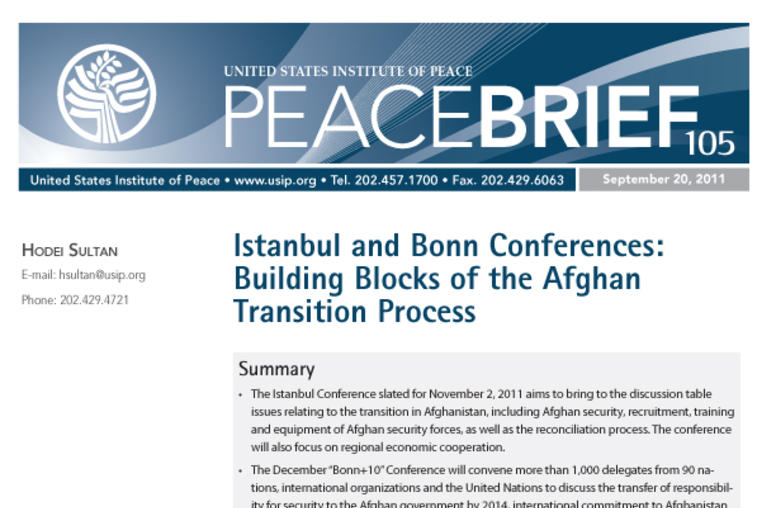
Istanbul and Bonn Conferences: Building Blocks of the Afghan Transition Process
This brief highlights two upcoming major conferences that will play a critical role in the future of Afghanistan. Hodei Sultan, the author, is a program specialist for Afghanistan and Pakistan programs with USIP’s Center for Conflict Management.